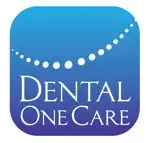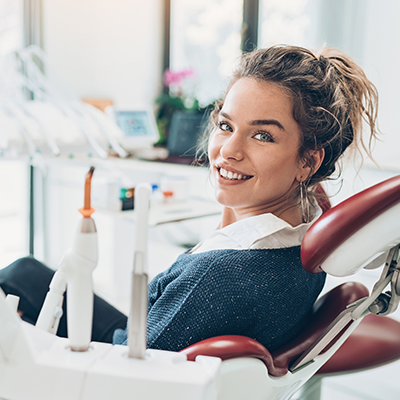Research shows that approximately 9% to 20% of the population suffers from some level of dental anxiety. This could be due to a variety of things, including:
- Fear of pain
- Fear of injections/the injection won’t work
- Fear of side effects associated with anesthetics
- Feeling helpless/loss of control
- Embarrassment/loss of personal space
Unfortunately, dental anxiety causes many people to avoid visiting the dentist for as long as possible. This means that when they finally do visit the dentist, the problem has escalated to a much more serious one than it would have been, to begin with.
The good news is at Dental One Care, we offer a variety of sedation options to help you cope with your fear and get the treatment that you need. Dr. Fadi Farhat has been practicing dentistry for many years and has the experience and expertise to help you choose the best sedation option for you.
In this article, we will explain the 8 important things that you need to know about sedation dentistry.
What Is Sedation Dentistry?
Sedation dentistry is used to help patients feel calm and relaxed during dental procedures. Typically, it is not full sedation, which means you’re awake but carefree. It is often referred to as “twilight sleep” because you have short-term amnesia, where you are not sensitive to pain. However, some patients do require full sedation, or general anesthesia, due to severe dental anxiety.
When Is Sedation Dentistry Helpful?
Sedation dentistry is helpful for patients who struggle with dental anxiety, have a sensitive gag reflex.
What Are the Different Types of Sedation?
There are four different types of sedation based on your personal needs:
- Nitrous oxide
- Oral sedation
- IV sedation
- General anesthesia
What are the different levels of sedation?
There are several levels of sedation. Nitrous oxide relaxes you, but you are still 100% awake. Oral and IV sedation relaxes you a bit more to where you are carefree and may doze off and on during the procedure, but can be roused to communicate with the team if necessary. General anesthesia knocks you out completely. You will be unaware of what is going on during the procedure. With Oral, IV, and General anesthesia, you will have little to no memory of what happened.
What Are the Advantages of Sedation Dentistry?
Sedation dentistry offers several advantages, including:
Relief from anxiety
One of the major advantages of sedation dentistry is that it allows patients with dental anxiety to get the dental care that they need. Conscious sedation allows the patient to participate in the procedure because they are relaxed and carefree, but still able to communicate with the dental team. General anesthesia puts the patient to sleep, so they are not aware of what is going on until the procedure is over. Either way, patients will not experience pain and will not remember much, if any, of the procedure.
Amnesia
While amnesia may not be the best thing, it is a great thing when it comes to sedation dentistry. After all, the main reason that many patients have dental anxiety is that they have had unpleasant experiences at some point in their lives. Sedation dentistry blocks new unpleasant memories from forming during dental treatments.
Removes gag reflex
In most cases, the gag reflex is a good thing- it can keep you from choking on foreign objects. However, during a dental procedure, it can be a bad thing because it can affect the outcome of the procedure.
Sedation dentistry paralyzes the gag reflex and makes the patient more comfortable, which allows the dentist to work quickly and effectively.
Relieves pain
Another one of the reasons that people have dental anxiety is because they are afraid of the pain often associated with dental procedures. Sedation dentistry eliminates this problem because the brain will not be able to detect pain.
Sedatives are Different from Anesthetics
Anesthetics, also known as local anesthesia, are used to numb the area where we will be working. This is automatically offered as part of your dental treatment plan. Sedatives, on the other hand, make you feel carefree and sometimes sleepy. You may doze off and on while we work, but you will be alert enough to communicate with us if necessary.
Sedation Dentistry is Safe When Done Correctly
When done correctly, sedation dentistry is 100% safe. Dr. Farhat and the team at Dental One Care are highly trained in the various forms of sedation: nitrous oxide, oral, and IV. We have a team member that focuses entirely on your comfort and how much sedation medication you are getting. If it seems like it might be wearing off, we’ll increase it, and we will gently and safely bring you back to consciousness when the procedure is over.
People Without Dental Anxiety Can Also Benefit from Sedation Dentistry
While most patients associate sedation dentistry with dental anxiety, there are others who may benefit from it as well. For example, if a procedure is going to be especially lengthy and patients may have difficulty sitting still the entire time, patients with a sensitive gag reflex, pediatric patients, special needs patients, and more may benefit from sedation dentistry.
Conclusion
If you have been avoiding going to the dentist due to dental anxiety, schedule a consultation with Dr. Farhat and the team at Dental One Care to discuss your sedation options. Our office staff will make sure that you are comfortable from the moment you enter the clinic, and this will continue as you move into the back with Dr. Farhat and the team.
We will discuss your dental concerns and goals, as well as your sedation options before we do anything else. We are located on Metro Parkway in Sterling Heights. We have extended office hours to help our patients who are unable to take time off work. Our office hours are Monday through Friday 10:00 AM to 7:00 PM and Saturday 10:00 AM to 2:00 PM.





